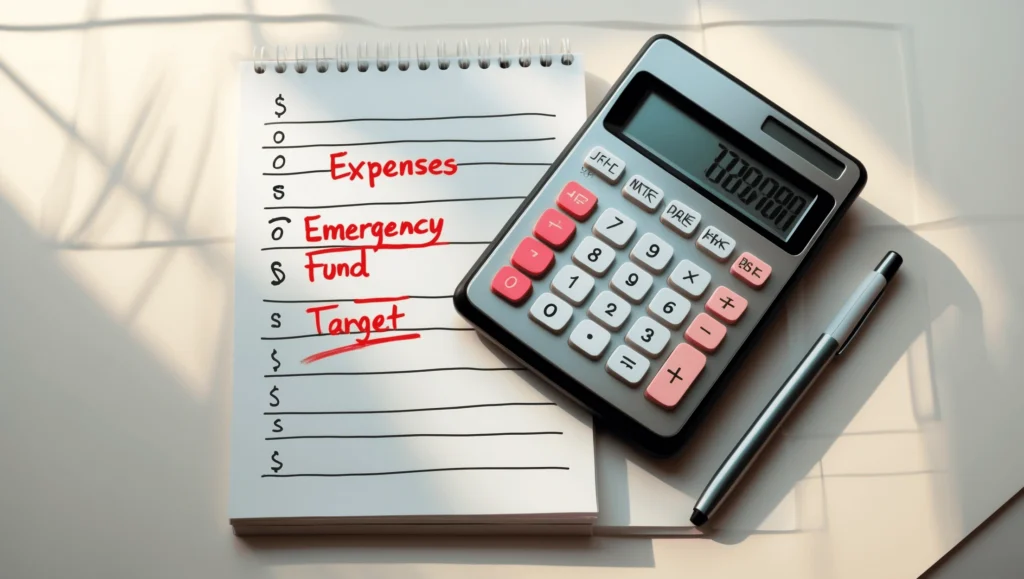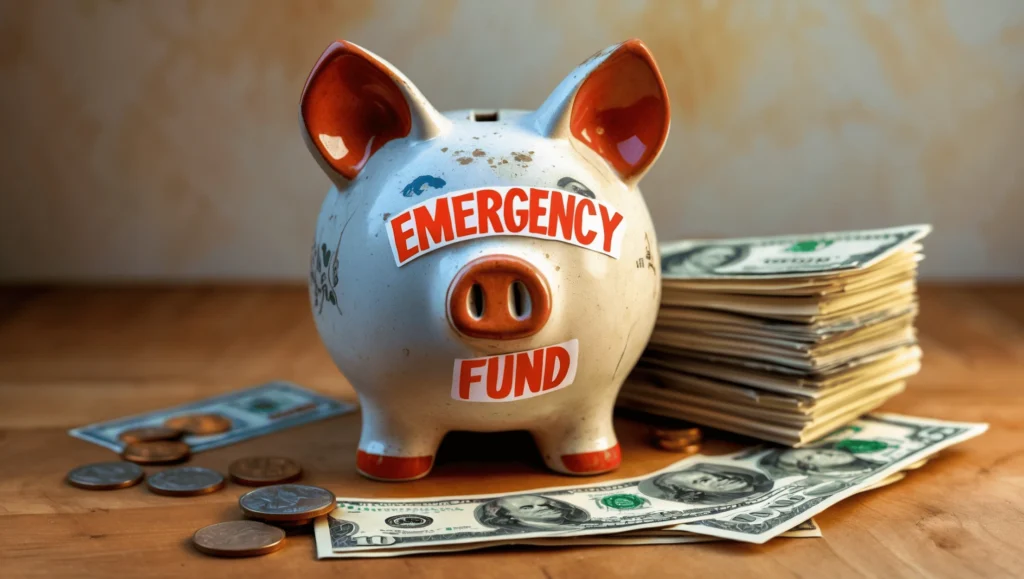An emergency fund is a dedicated amount of money set aside to cover unexpected expenses. It serves as a financial safety net, protecting you from situations like medical emergencies, car repairs, or sudden job loss. Without it, you might rely on high-interest debt, which can lead to long-term financial challenges.
The importance of an emergency fund cannot be overstated. It provides peace of mind, reduces financial stress, and helps you stay on track with your long-term financial goals. By prioritizing emergency savings, you ensure that life’s surprises don’t derail your financial security.
This blog post will explore 10 compelling reasons why everyone should have an emergency fund. From avoiding debt to safeguarding your future, each reason emphasizes the critical role emergency savings play in achieving financial stability. To learn more about starting your savings journey, visit reputable financial planning resources like Investopedia or NerdWallet.
What Is an Emergency Fund and Why Is It Crucial?
What Is an Emergency Fund?
An emergency fund is a dedicated amount of money set aside to cover unexpected expenses. It acts as a financial safety net, providing security during unforeseen situations such as medical emergencies, car repairs, or job loss.
Unlike regular savings, emergency funds are meant specifically for urgent and unpredictable events. They help prevent financial disruptions and keep you from relying on high-interest loans or credit cards in times of need. Many people store their emergency funds in high-yield savings accounts, which ensure easy access while earning some interest.
To build your fund effectively, use budgeting tools to identify how much you can save monthly. Budgeting apps like Mint or YNAB can make tracking and allocating your savings simpler.
Why Everyone Needs an Emergency Fund
Emergency funds are essential because they protect you from the financial strain caused by unexpected expenses. For example, a sudden medical bill or a car breakdown can disrupt your monthly budget. Without a financial cushion, you may have to rely on costly loans or credit cards, which can lead to debt.
An emergency fund provides peace of mind. It ensures that you can handle life’s surprises without jeopardizing your long-term financial goals, such as saving for retirement or investing. During job loss or economic downturns, having three to six months’ worth of living expenses saved can be a lifesaver.
By prioritizing emergency funds, you build resilience and reduce financial stress. Start today by assessing your expenses and creating a savings plan. For more information on why financial planning matters, check out this guide on personal finance.

How Emergency Funds Protect Your Financial Security
Avoiding Debt During Financial Crises
Emergency funds play a vital role in preventing reliance on high-interest loans during financial emergencies. When unexpected expenses arise—such as medical bills or urgent home repairs—having savings set aside allows you to cover these costs without borrowing money.
Without an emergency fund, individuals often resort to credit cards, payday loans, or other forms of high-interest debt. These options can quickly lead to a cycle of financial strain, as the added interest and fees make it harder to recover. By prioritizing an emergency fund, you can shield yourself from the long-term financial burden of debt.
For more information on how to avoid debt during emergencies, visit Debt.org.
Safeguarding Long-Term Financial Goals
Building an emergency fund ensures your long-term financial goals, such as retirement savings or investment plans, remain intact. Without a financial cushion, you might be forced to withdraw from retirement accounts or sell investments prematurely to cover urgent expenses.
Such actions not only deplete your savings but can also result in penalties, taxes, or missed opportunities for growth. An emergency fund acts as a protective barrier, allowing you to handle short-term crises while keeping your financial future on track.
To learn more about protecting your financial goals, explore resources at Investopedia.
Key Benefits of Building an Emergency Fund
Reduces Financial Stress
An emergency fund provides peace of mind when facing unexpected financial challenges. Knowing you have money set aside for emergencies can reduce anxiety during tough times. It acts as a financial safety net, ensuring you don’t have to rely on high-interest loans or credit cards when unplanned expenses arise.
When emergencies happen, such as medical bills or car repairs, having funds readily available means you can focus on solving the problem without added stress. This security allows you to approach challenges with a clearer mind.
Prepares You for Economic Downturns
Economic downturns, like recessions or periods of inflation, can strain your finances. Emergency savings help you stay afloat during these challenging times. For example, if you experience a sudden job loss or reduced income, an emergency fund can cover your basic expenses until you regain stability.
Having an emergency fund also prevents you from liquidating long-term investments at unfavorable times. This ensures your financial goals, such as retirement planning, remain intact. Learn more about the importance of financial preparedness during economic changes by visiting this guide on saving during recessions.
Offers Flexibility in Life’s Uncertainties
Life is unpredictable, and an emergency fund helps you adapt to unexpected changes. Whether it’s relocating for a new job, taking time off to care for a loved one, or managing unforeseen home repairs, having savings gives you the flexibility to make decisions without financial strain.
This flexibility also empowers you to make choices that align with your priorities, rather than being forced into decisions based solely on cost. For more strategies on how emergency funds can offer flexibility, check out this article on financial adaptability.
By building an emergency fund, you create a buffer that not only supports you during tough times but also empowers you to seize opportunities without hesitation. Start saving today to enjoy these key benefits and protect your financial security.

How Much Should You Save in an Emergency Fund?
Determining Your Savings Goal
To calculate how much you need in your emergency fund, start by assessing your monthly expenses. These include essentials like rent, utilities, groceries, transportation, and insurance. Multiply that total by three to six months, depending on your comfort level and financial security. For example, if your monthly expenses are $2,500, aim to save $7,500 to $15,000. This range ensures you’re prepared for unexpected emergencies, like job loss or medical expenses.
Having a clear savings goal tailored to your individual needs gives you a target to work toward. Use online emergency fund calculators or budgeting apps to streamline this process. Resources like this guide on emergency funds can help refine your strategy.
Where to Store Your Emergency Fund
Choosing the right place to store your emergency fund is crucial. A high-yield savings account is an excellent option because it provides easy access to your money while earning interest. Look for accounts with no fees and competitive rates to maximize your savings. Money market accounts are another safe choice, offering slightly higher returns with similar accessibility.
Avoid keeping your emergency fund in investments like stocks or bonds. These options carry risks and may lose value during market downturns. Instead, focus on liquidity and security when deciding where to store your funds.
Building It on a Budget
Building an emergency fund on a tight budget might seem challenging, but it’s entirely possible with a strategic approach. Start small by setting aside a manageable amount each week. For example, saving $20 per week adds up to over $1,000 in a year. Automating your savings can help make this process effortless.
Cutting non-essential expenses is another effective strategy. Review your spending to identify areas where you can save, such as dining out or subscription services. Consider side gigs or selling unused items to boost your income. With consistent effort, you can build your emergency fund, even with limited resources.
Setting clear goals, choosing the right storage options, and adopting practical savings strategies, you’ll be well on your way to creating a reliable financial safety net.
Steps to Start Building Your Emergency Fund Today
Create a Realistic Budget
The first step in building your fund is to create a realistic budget. A budget helps you track income and expenses, ensuring you allocate enough money to savings each month. To start, list your fixed expenses, such as rent, utilities, and insurance, alongside variable costs like groceries and entertainment. This will give you a clear picture of your financial situation. Once you have a budget in place, you can use personal finance tools like Mint or YNAB (You Need a Budget) to track your spending and savings goals. These tools offer insights into your spending habits and help ensure you stay on track to meet your emergency fund target.
Automate Your Savings
One of the best ways to make sure you consistently save for your emergency fund is to automate the process. Setting up automatic transfers from your checking account to a dedicated savings account ensures you never miss a contribution. Whether you save weekly or monthly, automation simplifies the process and builds consistency. Automatic savings allow you to make saving for emergencies a non-negotiable part of your financial routine. It removes the temptation to spend the money elsewhere. Over time, you’ll be surprised by how much you accumulate with this simple yet effective strategy.
Monitor and Adjust Over Time
Building your emergency fund isn’t a one-time task. It requires monitoring and adjustments over time. Your financial situation will change as life happens, so it’s essential to review your progress regularly. Track how your savings are growing and assess whether your target amount needs adjustment based on life changes, such as a new job, a move, or family additions. If your expenses increase, consider revisiting your budget and adjusting your monthly savings goals. By staying proactive and flexible, you’ll ensure your emergency fund grows in line with your evolving financial needs.
To build an effective emergency fund, start by taking control of your budget, automate your savings, and stay on top of changes. By following these steps, you’ll create a solid foundation for financial security. Learn more about emergency funds and how to manage them effectively here.

Conclusion
Emergency funds are a crucial aspect of financial security. They provide a safety net that helps you navigate life’s unexpected challenges, such as medical bills, job loss, or urgent repairs. Without an emergency fund, you may be forced to rely on high-interest loans or credit cards, which can lead to financial strain. By building an emergency fund, you protect yourself from such stress and ensure that your long-term financial goals remain intact. Having a dedicated savings account for emergencies gives you peace of mind, allowing you to handle crises without disrupting your financial future. It’s important to start building your emergency fund as soon as possible. Begin by setting a realistic savings goal, ideally covering three to six months of living expenses. Take small, consistent steps—whether by automating your savings or adjusting your budget—to ensure your emergency fund grows steadily over time. Don’t wait for the perfect moment; the first step toward financial security starts today.
